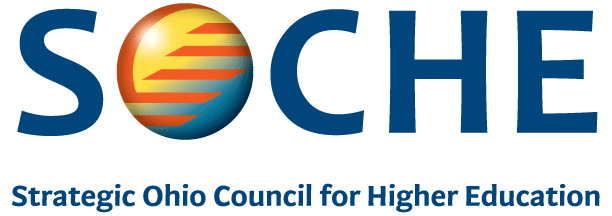2022 SOCHE What's Next DEI Conference
2022fri02dec9:00 amfri12:30 pm2022 SOCHE What's Next DEI ConferenceVirtual Event | EVENT COMPLETE
Event Details
After the inaugural event was such a resounding success, SOCHE
Event Details
After the inaugural event was such a resounding success, SOCHE is pleased to announce the continuation of important diversity, equity, and inclusion conversations at the 2022 What’s Next DEI Conference, which is scheduled for Friday, Dec. 2, from 9 a.m.-12:30 p.m. ET via SOCHE’s Zoom platform.
By now, most institutions have implemented DEI initiatives on their campuses, so the conversations have shifted to focus on “What’s Next?” This conference is your opportunity to gather with other higher education advocates, allies, and DEI professionals to discuss the current climate around campus DEI initiatives, what challenges might arise, and where efforts could (and should) go from here.
Check out the full conference program below.
Register by Monday, Nov. 21, for the best rate!
REGISTRATION CLOSES ON MONDAY, NOV. 28.
When: Friday, Dec. 2, 2022
9 a.m.-12:30 p.m. ET
Where: via SOCHE’s Zoom Platform (link will be sent 24 hours prior to event)
Cost:
- Personnel from SOCHE member schools: $20 per person through Nov. 21 (price increases to $30 on Nov. 22)
- Personnel from NON-member schools/organizations: $30 per person through Nov. 21 (price increases to $40 on Nov. 22)
- Students: Free
Registration Cancellation Policy
Questions? Contact Mindy Claggett at SOCHE
Event Program
| 8:45 a.m. | Meeting link opens |
| 9:00 a.m. | Opening and Welcome Conference Host: Tonya Mathis, Wright State University |
| 9:05 a.m. | Getting to the Root: Challenges and Context-Driven Solutions in the DEI Landscape With its hometown of Yellow Springs well known for an open-minded and progressive culture, Antioch College made the decision to become more intentional about diversity, equity, and inclusion. Learn more about how this initiative gained momentum on campus, strengthened village relationships, and launched vital programs in support of intentionality and purpose. Presenter: Shadia Alvarez, Antioch College |
| 9:45 a.m. | Break |
| 10:00 a.m. | Facing It Head On: Tips for Having Tough DEIB Conversations in Higher Education One-time anti-bias trainings are often insufficient for addressing every issue related to diversity, equity, inclusion and belonging (DEIB) in higher education. Furthermore, hiring a diversity professional and/or holding DEIB townhalls, are noble efforts, but they often fail to create lasting change within an organization. Truly creating an inclusive environment requires a holistic approach that involves a top-down approach and input from multiple stakeholders. However, to accomplish this, an open and transparent dialogue about DEIB must first occur, and a true commitment to inclusion must be embraced. Recognizing that these conversations often can be difficult, this presentation will provide attendees with practical tools to facilitate productive DEIB conversations. Presenter: Dr. Chenelle Jones, Franklin University |
| 10:45 a.m. | Break |
| 11:00 a.m. | Concurrent Sessions (choose one at registration) • Session 1 – Recentering Inclusive Pedagogy in Faculty Development The purpose of this presentation is to describe a unique and integrated approach to developing a 3-week inclusive pedagogy course at Franklin University. Initial planning and ongoing efforts to assure the quality of the curriculum and iterative improvements will be discussed. Presenter: Dr. Meghan Raehll, Franklin University Moderator: Aliecia Stathopoulos, Franklin University • Session 2 – Advancing REI Professional Development Within Academic Advising This presentation will focus on the professional development recommendations provided by the Race, Ethnicity, and Inclusion (REI) in Advising Task Force at the University of Cincinnati. Those recommendations were: development of a comprehensive REI training program; accountability for individual professional development in REI; establishment of a permanent REI Advisory Board for the advising community. The goal of the presentation is to review these recommendations, the progress that has been made in these areas, the challenges to implementation, and to provide steps participants can take to improve REI at their own institutions. Presenters: Shea Cummings and Alex Brogaard, University of Cincinnati Moderator: Angelica Kennedy, Cincinnati State Technical & Community College • Session 3 – Someone Who Looks Like Me: The Importance of Faculty Diversity in Higher Education The United States population is increasingly diverse. Yet, faculty in higher education do not reflect this trend. Exposure to different world views is essential to developing citizens prepared to interact with a diverse world. Further, without minorities at the front of the classroom as role models, students from marginalized groups have difficulty imagining themselves there, and the trend continues. This presentation will explore the importance of hiring a diverse faculty and strategies for building a culture where they can thrive. Presenter: Dr. Lori Bailey, Franklin University Moderator: Tonya Mathis, Wright State University |
| 11:45 a.m. | Break |
| 12:00 p.m. | Keynote: Transforming Your Institution Through Inclusive Leadership Dr. Bleuzette Marshall, Vice President for Equity, Inclusion & Community Impact, University of Cincinnati Designed to engage campus leaders in a conversation about diversity, equity, and inclusion, this session will allow participants to: articulate their “Why” – the reason they work and serve; review the signature traits of an inclusive leader; personalize leadership and accountability from the GDEIB; explore factors that impact employee and organization productivity; review a framework to accelerate inclusion efforts for their colleges/universities; and identify employee personality traits and their benefit to the work of inclusion. |
| 12:30 p.m. | Closing comments |
Time
(Friday) 9:00 am - 12:30 pm(GMT-05:00)

